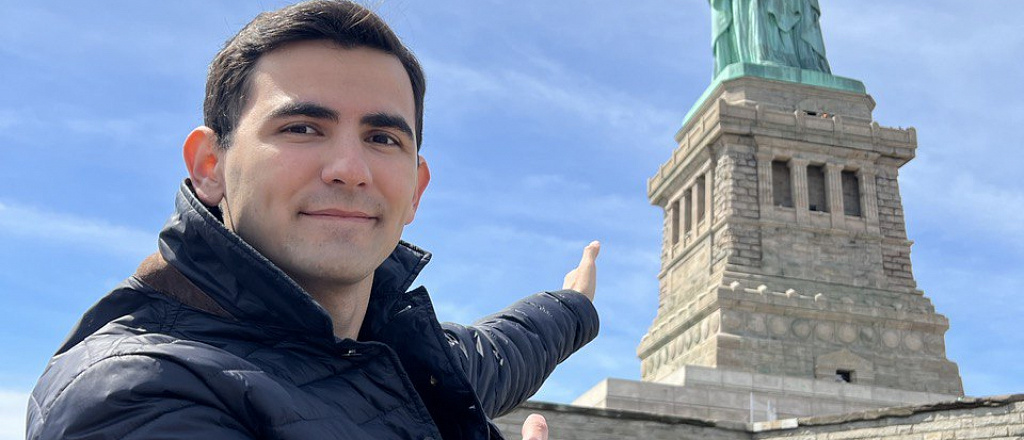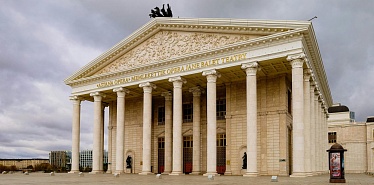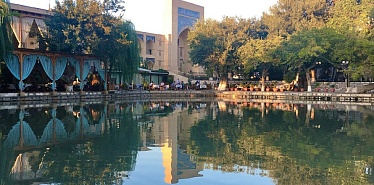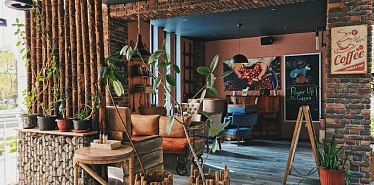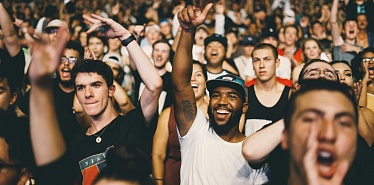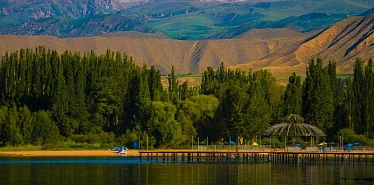We met a young man from Tajikistan who lives in the US and works for the International Monetary Fund. He shared tips for those who want to build a career abroad and told how he came to his work.
Hamza Sharifzoda, Washington DC, Research Analyst at IMF, Linkedin
About moving
I am engaged in analytical work in the field of macroeconomics and political economy.
I moved to the USA about four years ago, as I entered the master's program in the direction: Politics and Economics of the CIS countries at Georgetown University. I studied on a full grant, which covered both the cost of living and studying.
During my studies, I simultaneously worked in international organizations and was engaged in research. I also worked at the World Bank, was engaged in analytical work in the field of social development and poverty reduction in rural areas.
About adaptation and difficulties
Moving to any country is difficult. Especially if you do it after 35 years. The most important thing is to quickly integrate into the local society. To do this, it is necessary to choose the right social elevators and mechanisms.
The first recommendation is to know the language of the country you are moving to. I had several opportunities to move to Europe to study there on a full scholarship. But I refused them because I did not know the local language. This would become a barrier to adaptation and social integration. In the USA, I had no problems building networking, as I am fluent in English and feel comfortable here.
On the first day of my arrival, I was struck by the friendliness of the people. It's easy to make friends here. I never felt alone. I like that people easily and quickly make contact.
I can note a difficulty with the healthcare system. If you don't have insurance, a simple doctor's consultation can cost you a hefty sum. When I was at university, we were required to purchase insurance for $ 3000 — it does not matter if you need a doctor or not.
If you are planning to move to the USA, take your English to a high level. Get a tutor, take it seriously. The second tip is to enroll in a local educational institution. This will open many doors for you. And the third advice — be prepared that at first it will be uncomfortable and difficult.
About development and career
During my master's degree, I helped a professor with research work. Later I did my research on the South Caucasus and received a grant from NATO. In the summer, I trained at Chemonics International. I have always been interested in the direction of economic development of countries. Then I worked at the World Bank in the field of social development in Central Asia. And at the end of 2020, I successfully passed the selection to the International Monetary Fund, where continued to work as an analyst in the field of macroeconomics for low-income countries.
The International Monetary Fund is an interesting place. I am overwhelmed with a sense of pride, because we are implementing an important mission — helping to restore the macroeconomic balance. For example, during the pandemic, when countries had many financial difficulties. On the one hand, this is a difficult job, often we work long hours. But on the other hand, I see that what we do is of great importance. I have colleagues all over the planet. Each of them is a specialist in their field, and I grow and develop with them.
It was difficult for me to find a job. There are plenty of jobs in international relations in Washington, but the job market is highly competitive. Competent people work here, who graduated from top universities and gained international experience. Communicate with them is a pleasure. A lot of knowledge can be gained from a simple conversation. But when a vacancy opens, you become competitors. Selection to international organizations is tough. The first stage is the HR filter, the second is the exam. Getting a job is a long process that takes about a month and a half.
The most important thing is to study well
To quickly find a good position in the US, it is better to get an education here. Local universities provide not only knowledge that will be useful in work, but also useful connections, contacts, and an understanding of the norms accepted in American society. In this regard, the university plays a central role in the process of adaptation.
The most important thing is to study well. The formula: «Study well and get a good job» works here. The USA is a country that creates opportunities. People with different experience have a chance to break through, grow up the career ladder.
Keep in mind that internships here are often unpaid. Washington is one of the most expensive cities in the US. There are many opportunities for practice, but interns are asked to work 40 hours and are not even given money for travel.
My advice to guys who want to work in international organizations: learn languages and improve your Quantitative Skills. You need to be able to work with numbers, understand what reports and data are.
How did the move affect
I became interested in the history of America, began to travel more to historical cities.







